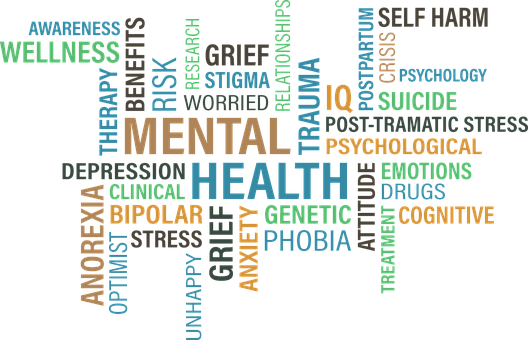
If you are among the individuals who are committed to helping the community that they are in, then you are fortunate enough to reap the positive effects of community involvement and socialization on your emotional and mental well-being. For someone who loves building relationships and learning new things, you will also find more meaning to your daily life when you are part of a community.
There is an opportunity to create a community through the hobbies that you share with neighbors, the place that you beautify together, the experiences that you have in common, and the common goal that you strive to achieve for your community. All these help people (including you) foster a healthier outlook, a better insight, and enhanced self-esteem. “If you are struggling with low self-esteem, it is encouraged that you seek some type of help and support to work through this issue, and to help you be the best version of yourself that you can be.” A reminder from Dr. Nikki Martinez, Psy.D.
Activities like volunteering, hosting soup kitchens, participating in dance or singing groups, and joining groups that help organize community contests and presentations are just some of the many things you can do with your fellow community members to feel a sense of value and belonging. This is important in that when you are confident and happy where you reside; you are somehow far from feeling isolated, depressed, or anxious.
If you want to help others feel satisfied and confident in their community, here are several ways you can increase mental awareness and decrease the debilitating effects of mental illness.
- Start A Screening Event. Ask help from your friends to host a mental health screening. Here, you can disseminate vital information about taking care of one’s mental health, like finding ways to avoid depression by engaging in sports. First participants who are easy to invite? Your friends, of course.
- Educate Yourself. Know more about it from the web and read about it from books. Was there a time in your life when you felt you were so stressed out that you almost had it? Learn about the signs and symptoms of mental illness. Subsequently, you can teach others what you learned about mental illness.
- Encourage Others To Talk Openly. The stigma on mental health still exists, and one way you can help change this is to encourage your community members to talk about it freely. Start with yourself and then let others speak up. Remind the group to be non-judgmental when they listen to the others share their story. Also, remind them to always confide in someone they trust – family, friends, significant others, even their close neighbor if they feel comfortable – because it is important to let it out. “Why talk about your problems including mental health challenges? Just talking about your situation to someone can reduce your stress and help you feel better.” Dr. Aaron Kaplan, PsyD, Clinical Psychologist explains.

- Teach Them To Watch For Signs Of Mental Illness. People should be able to discern when to reach out to their loved ones if they think they have some kind of mental illness. Encourage them to talk about mental health with family, especially with their kids, which are prone to depression and anxiety themselves.
- Write A Blog About It. If you have a passion for writing, spending some time creating a blog site about mental health. If you can, visit it once a day and just fill the site with helpful information that could reach a lot of people and help them one way or another. Remember that many mentally-ill people were not given a chance to have themselves treated because they didn’t know they had a mental illness in the first place. “Get outside of whatever your thought of traditional journaling may mean, and have fun with it!” Lindsey Pratt Psychotherapy, LMHC advises.
- In-School, Let The Teachers Talk About It. Participate in a group where you can educate the teachers about what mental health is. They are a very helpful resource in spreading good news like mental health awareness. Even more complicated is the topic of suicide and suicide prevention, which the students are quite vulnerable to doing when they think there can be no solutions to their problems.

- Show Support. When you strive to spread mental health awareness, this means that you are supportive of those who have a mild, moderate, or severe mental illness.
- Arrange Community Workouts. You can hold these workouts in the gymnasium or the park. This leads to improved mental health. Workouts are undeniably an awesome mood booster.
Continue to participate in community activities and reach out to your fellow members so they too will be inspired to do their part as well. Together, your community – and the others – can tremendously help expand mental health awareness wherever you are.